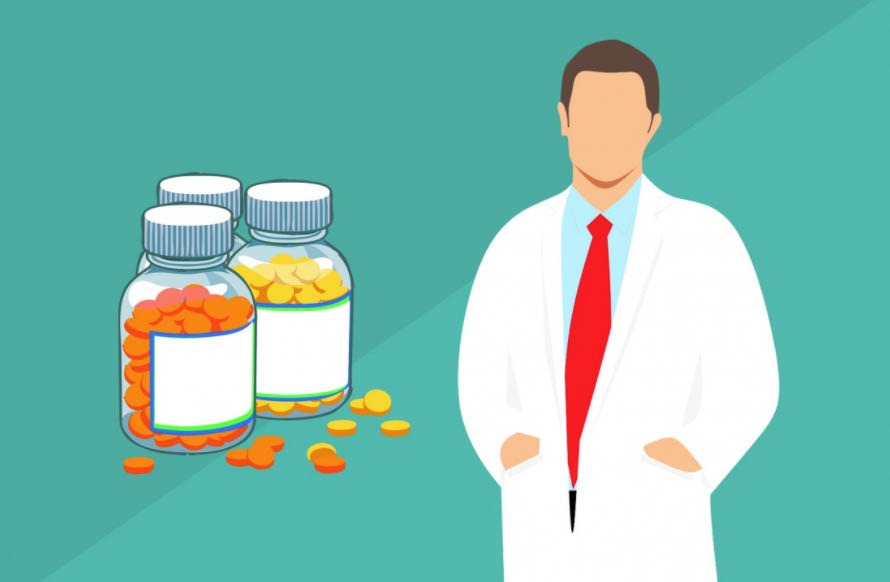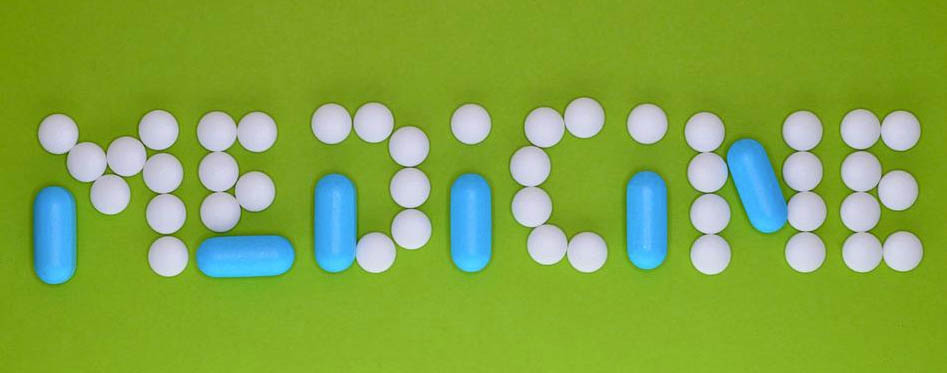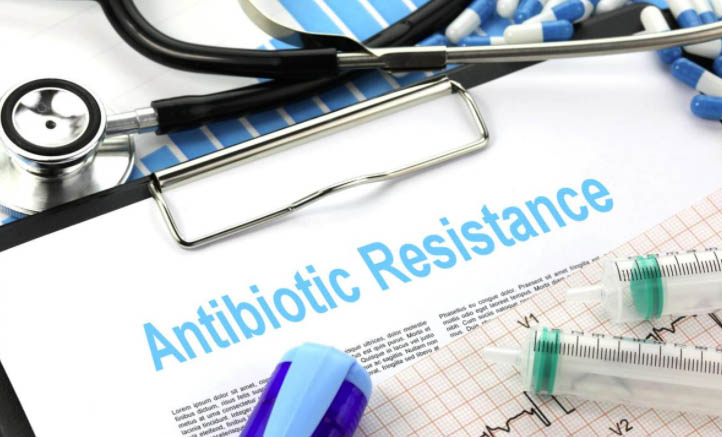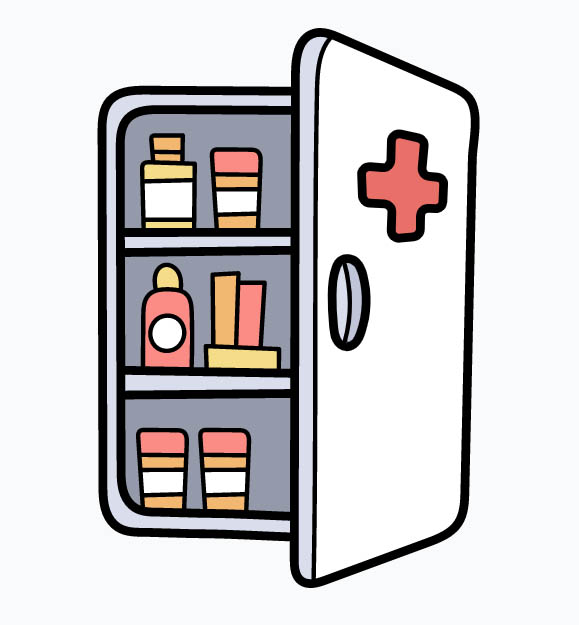There are many things you should know about any medications you’ve been prescribed before you take them. If you have a few different types of medication that you are taking, things can begin to get a little bit complicated. Your doctor should tell you some things about the treatment they are prescribing to you, but a pharmacist can help you out as well. If you have any questions about your treatment, speaking to a pharmacist may well be an easier option than making an appointment to see your doctor. We take a look at some of the things you need to know about before you take your medication.
Contents
- 1 What is Your Medication Called?
- 2 Knowing What the Meds are Supposed to Do
- 3 Ordering Your Treatments
- 4 Avoiding Counterfeit Medications
- 5 Taking Your Medication
- 6 Failing to Follow Instructions
- 7 How Long Do you Need to Take the Pills?
- 8 Know the Side Effects
- 9 Taking Non-prescription Drugs with Prescription Meds
- 10 Storing Your Pills
- 11 When to Contact Your Doctor or Pharmacist?
- 12 Conclusion
- 13 POSSIBLE ALTERNATIVES
What is Your Medication Called?
You need to be familiar with the names of the medications you have been prescribed. This will allow you to tell other doctors or medical professionals what pills you are taking. This will make sure they don’t prescribe you other drugs that could react unfavorably with the pills you are already taking.
This isn’t necessarily simple, however, as medicines can have several different names. A medication could be using a brand name and there could also be a generic name for it. The brand name will be unique to each pharmaceutical company that manufactures that type of drug. But if a few different pharmaceutical companies make a generic medication, they will all be using the same generic name.
If you have many different types of medication that you take, it is important to write down the details. You should write down all the medications you take along with the dosages and the reason for taking them. Keeping a list like this with you will help healthcare professionals and pharmacists to better serve you anytime you need medical assistance.
Knowing What the Meds are Supposed to Do
You should find out what the drugs you are taking are intended to do. Your doctor should explain this to you at the time they are prescribed, but you need to know what to expect so that you know that they are working. The pharmacist can provide additional information if your doctor doesn’t explain this to you.
Ordering Your Treatments
There are more options than ever before to purchase medicine. You can use your local high street pharmacy or go online for a cheap deal.
When buying online, however, it is far easy to run into problems. There are a large number of scam pharmacies online that are trying to convince you to part with your cash. It can be difficult to know when a pharmacy is legit or not, so you need to check online pharmacy 2020 reviews for the latest information.
If you do a little research on a drug store before you decide to purchase from them, you can make sure you don’t fall into a trap. If you make a purchase of your medications from a cheap online pharmacy that isn’t reliable you could face some serious health problems.
The risks of using a rogue online pharmacy include:
- Fake pills
- Low-quality drugs
- Credit card fraud
- Slow delivery or never getting the pills you order
- Identity fraud
Avoiding Counterfeit Medications
Counterfeit medications are created to look exactly like the real thing. This means that if you get counterfeit drugs, you are unlikely to be able to tell the difference. However, what the pills contain might be very different from what the genuine article includes.
Brick and mortar pharmacies rarely supply counterfeit medications to their customers, though it has happened. This is a far greater problem with online drugstores, however. Make sure you check online pharmacy 2020 reviews so that you reduce the chances of purchasing counterfeit drugs.
Taking Your Medication
You should understand and carefully follow the instructions on the packaging for how to take your medication. Perhaps it needs to be taken with food, or at certain times of the day. You may have to avoid drinking alcohol to make sure the medication does what it is intended to do.
By correctly following the instructions given by your doctor or pharmacist and also written on the packaging, you will make sure that the drugs are as effective as they can be to treat your condition.
Failing to Follow Instructions
 If you do not, for whatever reason, correctly follow the instructions for taking the pills you should contact your pharmacist or doctor for advice. Perhaps you have missed taking some of the pills you should have done, or you have done something the instructions told you not to do.
If you do not, for whatever reason, correctly follow the instructions for taking the pills you should contact your pharmacist or doctor for advice. Perhaps you have missed taking some of the pills you should have done, or you have done something the instructions told you not to do.
Mistakes like these can easily happen, but to make sure it isn’t really an issue you should get advice from a pharmacist to find out if it is a major problem. It can be advisable to ask a pharmacist about potential problems before they happen when you collect your meds.
How Long Do you Need to Take the Pills?
Your doctor should make it clear how long the pills need to be taken for. Perhaps they are pills that need to be taken indefinitely, or just a few weeks, either way, you should be clear on this.
For some medications, like antibiotics, you should take the full course of medication until there are no pills left in the packet. Even if the problem you are taking the pills for has cleared up, it is important to continue with the antibiotics to reduce the risks of creating antibiotic-resistant bacteria.
For some other medications, the dosage you take may need to change over time. With some pills, it is important to gradually lower the dose over time and not stop taking them all of a sudden. This is because with some medications there can be side effects if you stop taking them immediately. Other drugs might need to be tapered as there is a risk of addiction when taking the medication.
Know the Side Effects
Any drugs you are taking could cause some side effects, though in most cases, this won’t be very serious. You need to be aware of what the side effects will be so you aren’t surprised by them.
Though serious side effects are normally quite unlikely, they can prevent you from continuing to take the medication. If you are having side effects you will need to contact a medical professional to find out if something can be done or your medication changed.
Check with your pharmacist about central side effects if you are concerned when purchasing your meds. Your pharmacy may be able to help you avoid the side effects.
Taking Non-prescription Drugs with Prescription Meds
There are many ways in which non-prescription drugs can adversely affect your health if you are taking prescription meds as well. This isn’t always going to be the case, of course, so if you’re unsure make sure you ask your doctor or pharmacist before you run into problems.
It is not only non-prescription drugs that could be a problem. If you are taking herbal treatments or food supplements they can also interact with prescription pills. For this reason, it is very important to mention these to your doctor when they are prescribing you medication.
Storing Your Pills
You should take some precautions about out how you store your meds. If you don’t store them correctly, you could find they don’t work as expected.
While you might just routinely put your tablets in the bathroom cabinet, this could well be a very bad idea. The heat and moisture that occurs in bathrooms, isn’t great for medication. While they are often in airtight containers, if you forget to close the lid properly you could degrade the pills.
You should also avoid placing your meds close to heat sources like some types of lighting or a heater. Instead, they will normally need to be stored in a cool dry place. Some types of treatment will need to be refrigerated so pay attention to the advice on the label.
You also have to be careful with where you put your medications so that they can’t be taken by children. Even if there is a childproof lid on the container, this won’t always work, and if young children get hold of your pills there could be very serious consequences.
When to Contact Your Doctor or Pharmacist?
If you are suffering from side effects that are even more severe than you expected or not described in the information for the medication, take the precaution, and contact a pharmacist or your doctor.
If you find that the medication doesn’t seem to be performing as you expected, it may be because you haven’t completed the course of medication yet. Once you have taken all the pills, and the problem persists, you will need to return to your doctor.
Your doctor should give you some understanding of how long it will take for your treatment to fix the problem. If it doesn’t work out like this, the treatment you are taking may not be the right option for you, and you will have to return to your doctor to change drugs.
Conclusion
Medications exist to cure your problems and make your life better, but things can go wrong. You need to pay careful attention to the instructions given with any drugs you purchase so that you reduce the likelihood of something happening that will harm your health further.
[fblike]
POSSIBLE ALTERNATIVES
There are also quite many online pharmacies on the net that have proved themselves to be excellent ones. We keep an eye on them as well. They get into our reviews from time to time, and you can see them on the pages of our site.We have placed the best online pharmacies into a separate list on the Pharmacy Ratings page. Ratings of online pharmacies that have successfully passed verification and check by our team: Link>>>









